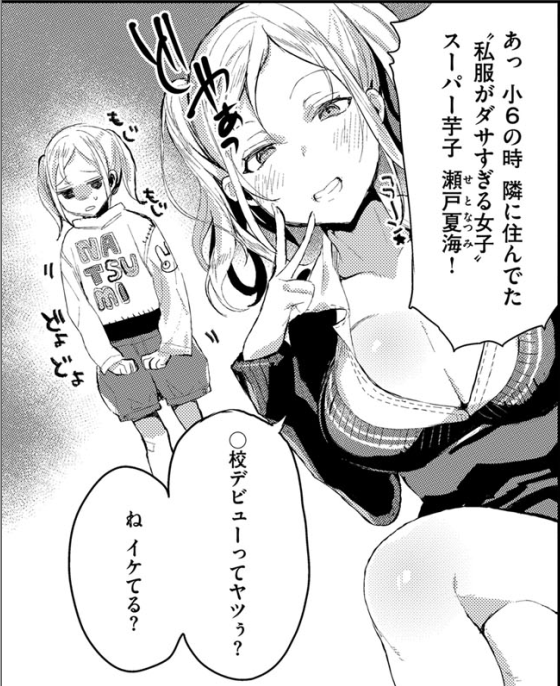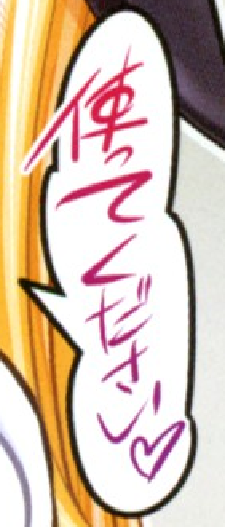Loading. Please Wait... 
 |
 |
 |
 Random translation help Random translation help |
|
 Jan 26 2018, 06:44
Jan 26 2018, 06:44
|
rqwrqw
Group: Members
Posts: 123
Joined: 2-March 11

|
QUOTE(N04h @ Jan 26 2018, 14:49) 
さぶいほい?
Seems like it. ほい might be a dialect or a custom gobi or something? さぶい is probably さむい? Edit: Could also be a dakuten like nonotan suggested (though it looks a little low down for that). I guess ぼ would be a slurred よ in that instance? This post has been edited by rqwrqw: Jan 26 2018, 06:48 |
|
|
|
 Jan 26 2018, 12:04
Jan 26 2018, 12:04
|
rqwrqw
Group: Members
Posts: 123
Joined: 2-March 11

|
Oh, cool. I'm not too familiar with Kansaiben. Makes me interested in finding out the etymology of that.
|
|
|
|
 Jan 27 2018, 01:17
Jan 27 2018, 01:17
|
N04h
Group: Gold Star Club
Posts: 5,031
Joined: 23-March 07

|
What does 芋子 mean?  |
|
|
|
 Jan 27 2018, 01:40
Jan 27 2018, 01:40
|
jeddite-eht
Group: Gold Star Club
Posts: 227
Joined: 30-December 17

|
QUOTE(N04h @ Jan 27 2018, 01:17)  What does 芋子 mean?  From reading these, [ detail.chiebukuro.yahoo.co.jp] https://detail.chiebukuro.yahoo.co.jp/qa/qu...ail/q1440644809[ zokugo-dict.com] http://zokugo-dict.com/02i/imoi.htmIt looks like いもい and いも女 mean something like, "lacks good taste", "no sense of fashion", "dull", "lame", "uncool", etc. So it looks like it's something like, Other person: "Whoa, you used to be the girl who lived next door to me that dressed so dull and boring. But wow, look at you now!" Natsumi: "This is my debut. Don't I look so cool and fashionable now?" |
|
|
|
|
 |
|
 Jan 27 2018, 01:56
Jan 27 2018, 01:56
|
bcmbbucks
Newcomer
 Group: Recruits
Posts: 18
Joined: 6-April 12

|
Hi I am part of a group working on compiling Kon-Kit tankubon chapters. We are trying to retranslate and redo the tankubon chapters because the previous translations were all kind of messed up. Can I get some help with Bubble 1 and Bubble 5?  Is it more of something like Bubble 1: Don't get the wrong idea, okay? I only do this when my husbad begged/asked for it. Bubble 5 : You are the first one I am doing this willingly Jun-kun! Or Bubble 1: Don't get the wrong idea. I don't even do this when my husbad asked me to do this. Bubble 5: So Jun-kun, you will be the first one I am doing this! Thanks in advanced! This post has been edited by bcmbbucks: Jan 27 2018, 01:57 |
|
|
|
|
 |
|
 Jan 27 2018, 02:06
Jan 27 2018, 02:06
|
jeddite-eht
Group: Gold Star Club
Posts: 227
Joined: 30-December 17

|
QUOTE(bcmbbucks @ Jan 27 2018, 01:56)  Hi I am part of a group working on compiling Kon-Kit tankubon chapters. We are trying to retranslate and redo the tankubon chapters because the previous translations were all kind of messed up. Can I get some help with Bubble 1 and Bubble 5?  Is it more of something like Bubble 1: Don't get the wrong idea, okay? I only do this when my husbad begged/asked for it. Bubble 5 : You are the first one I am doing this willingly Jun-kun! Or Bubble 1: Don't get the wrong idea. I don't even do this when my husbad asked me to do this. Bubble 5: So Jun-kun, you will be the first one I am doing this! Thanks in advanced! The latter two. Though I'd translate them more like Bubble 1: "Don't get the wrong idea, I haven't even done this with my husband when he's asked" Bubble 5: "So you're the first one I'll have ever done this with!" |
|
|
|
|
 |
|
 Jan 27 2018, 02:44
Jan 27 2018, 02:44
|
bcmbbucks
Newcomer
 Group: Recruits
Posts: 18
Joined: 6-April 12

|
Thanks jeddite-eht!
Also can you point out which phrase or words indicated the "haven't even done" part instead of "I only do this when asked"? Like, which phrase is the "haven't even done " part?
This post has been edited by bcmbbucks: Jan 27 2018, 03:03
|
|
|
|
|
 |
|
 Jan 27 2018, 04:05
Jan 27 2018, 04:05
|
jeddite-eht
Group: Gold Star Club
Posts: 227
Joined: 30-December 17

|
QUOTE(bcmbbucks @ Jan 27 2018, 02:44) 
Thanks jeddite-eht!
Also can you point out which phrase or words indicated the "haven't even done" part instead of "I only do this when asked"? Like, which phrase is the "haven't even done " part?
〜したことがない is what means, "I haven't ever done 〜 ". 〜したことがある specifically refers to whether an occurrence of whatever verb precedes it has ever actually happened. I think it can also occur with は instead of が too. 見たことがない I haven't ever seen it. 行ったことがない I haven't ever gone there. ヨーロッパに行ったことはありますか? Have you ever been to Europe? いいえ、ヨーロッパに行ったことはありません。 No, I've never been to Europe. |
|
|
|
|
 |
|
 Jan 27 2018, 04:41
Jan 27 2018, 04:41
|
bcmbbucks
Newcomer
 Group: Recruits
Posts: 18
Joined: 6-April 12

|
QUOTE(jeddite-eht @ Jan 27 2018, 04:05) 
〜したことがない is what means, "I haven't ever done 〜 ". 〜したことがある specifically refers to whether an occurrence of whatever verb precedes it has ever actually happened. I think it can also occur with は instead of が too.
見たことがない I haven't ever seen it.
行ったことがない I haven't ever gone there.
ヨーロッパに行ったことはありますか? Have you ever been to Europe?
いいえ、ヨーロッパに行ったことはありません。 No, I've never been to Europe.
Thanks again for the detailed explanation! |
|
|
|
|
 |
|
|
 |
|
 Jan 29 2018, 02:35
Jan 29 2018, 02:35
|
sauerkraut
Group: Members
Posts: 283
Joined: 9-November 12

|
Kinda quick question. Just because I want to be absolutely sure. https://e-hentai.org/s/e9dbf20c96/782307-159https://e-hentai.org/s/a5a84d3678/782307-160Context: Wife cheated on husband, husband raised daughter to hate her mom. Husband fingers daughter and mom knows about it. She can't convince her daughter that it wasn't ok because she hates her. Transcript: Mom: 昨日のパパとのアレ... 良くない事だからもうゃめなさい... Erika: 良くない事って何? Erika: パパがあんたがそう言ってきたらこう言えって言ってた 本当に良くない事ってなんですか? Is she refering to her mom? I guess it all comes down to whether 事 can be used to refer to people too, or the "bad thing" is another thing? (Also, is there some nuance to use 事 to refer to people? is it more rude or familiar, etc.) Also "パパがあんたがそう言ってきたらこう言えって言ってた" is "Dad told me to say this if you said that to me", right?
|
|
|
|
|
 |
|
 Jan 29 2018, 23:35
Jan 29 2018, 23:35
|
mikkooo
Lurker
Group: Lurkers
Posts: 2
Joined: 5-May 14

|
QUOTE(sauerkraut @ Jan 29 2018, 02:35) 
Kinda quick question. Just because I want to be absolutely sure.
Context: Wife cheated on husband, husband raised daughter to hate her mom. Husband fingers daughter and mom knows about it. She can't convince her daughter that it wasn't ok because she hates her.
Transcript:
Mom: 昨日のパパとのアレ...
良くない事だからもうゃめなさい...
Erika: 良くない事って何?
Erika: パパがあんたがそう言ってきたらこう言えって言ってた
本当に良くない事ってなんですか?
Is she refering to her mom? I guess it all comes down to whether 事 can be used to refer to people too, or the "bad thing" is another thing? (Also, is there some nuance to use 事 to refer to people? is it more rude or familiar, etc.)
Also "パパがあんたがそう言ってきたらこう言えって言ってた" is "Dad told me to say this if you said that to me", right?
She's not directly referring to her mom. The word 事 can sometimes refer to a person when the person is the target of some action, for example 私の事が本当に好きですか。The 私の part is important here, I've never seen 事 alone being used on a person. When 私の事 or 貴方の事 etc. is used, the meaning is a bit softer than using the personal pronoun alone without the の事 part because you're referring to the person a little indirectly. In this case the "bad thing" (良くない事) is the mom cheating on her husband. The father told the girl to reply this way to her mom to call her out for cheating. Also you're correct on your translation of "パパがあんたがそう言ってきたらこう言えって言ってた". |
|
|
|
|
 |
|
 Jan 30 2018, 04:32
Jan 30 2018, 04:32
|
sauerkraut
Group: Members
Posts: 283
Joined: 9-November 12

|
QUOTE(mikkooo @ Jan 29 2018, 21:35) 
She's not directly referring to her mom. The word 事 can sometimes refer to a person when the person is the target of some action, for example 私の事が本当に好きですか。The 私の part is important here, I've never seen 事 alone being used on a person. When 私の事 or 貴方の事 etc. is used, the meaning is a bit softer than using the personal pronoun alone without the の事 part because you're referring to the person a little indirectly.
In this case the "bad thing" (良くない事) is the mom cheating on her husband. The father told the girl to reply this way to her mom to call her out for cheating. Also you're correct on your translation of "パパがあんたがそう言ってきたらこう言えって言ってた".
Thanks a bunch. I hope you have a good time on the forums (IMG:[ invalid] style_emoticons/default/smile.gif) |
|
|
|
|
 |
|
 Jan 31 2018, 04:06
Jan 31 2018, 04:06
|
webdriver
Group: Members
Posts: 176
Joined: 14-February 13

|
need help.  What is the word before "kudasai"? Thank you |
|
|
|
 Jan 31 2018, 04:49
Jan 31 2018, 04:49
|
mundomuñeca
Group: Members
Posts: 4,221
Joined: 14-July 17

|
QUOTE(webdriver @ Jan 31 2018, 05:06) 
What is the word before "kudasai"?
It could be 使ってください , meaning "Please, use it" . You should give more context thou', it helps (IMG:[ invalid] style_emoticons/default/smile.gif) |
|
|
|
 Jan 31 2018, 11:57
Jan 31 2018, 11:57
|
webdriver
Group: Members
Posts: 176
Joined: 14-February 13

|
QUOTE(mundomuñeca @ Jan 31 2018, 09:49)  It could be 使ってください , meaning "Please, use it" . You should give more context thou', it helps (IMG:[ invalid] style_emoticons/default/smile.gif) I do think that's about right, it's just the word looks like straight line. Thx, it didn't cross my mind. btw, yeah she is waiting for the cock to choose which hole to use first |
|
|
|
 Jan 31 2018, 22:45
Jan 31 2018, 22:45
|
Comoop
Group: Members
Posts: 153
Joined: 9-August 17

|
Yosh,
I'm struggling with this sentence:
"姉さんは僕の事。。。嫌い?"
I can't figured out what is the sense of "事" here, which is use multiple times in the doujin expressed in similar ways.
context: boy jealous of his "anesan" 's husband, he'll end up forcing her having sex with him. She doesn't agree but she actually has some feelings for him too.
Hope you could help me !
|
|
|
|
|
 |
|
 Jan 31 2018, 23:21
Jan 31 2018, 23:21
|
miceder
Group: Members
Posts: 252
Joined: 18-August 11

|
QUOTE(Comoop @ Jan 31 2018, 15:45) 
Yosh,
I'm struggling with this sentence:
"姉さんは僕の事。。。嫌い?"
I can't figured out what is the sense of "事" here, which is use multiple times in the doujin expressed in similar ways.
context: boy jealous of his "anesan" 's husband, he'll end up forcing her having sex with him. She doesn't agree but she actually has some feelings for him too.
Hope you could help me !
For 事, read over the response by mikkooo above. In these cases, it kind of means "about", so 僕の事 would be "about me". The whole thing then is "Nee-san, do you... hate me?" |
|
|
|
|
 |
|
 Jan 31 2018, 23:55
Jan 31 2018, 23:55
|
Comoop
Group: Members
Posts: 153
Joined: 9-August 17

|
QUOTE(miceder @ Jan 31 2018, 23:21) 
For 事, read over the response by mikkooo above. In these cases, it kind of means "about", so 僕の事 would be "about me". The whole thing then is "Nee-san, do you... hate me?"
Oh okay, that makes sense now, thanks a lot ! |
|
|
|
1 User(s) are reading this topic (1 Guests and 0 Anonymous Users)
0 Members:
|
 |
 |
 |
|
|
|